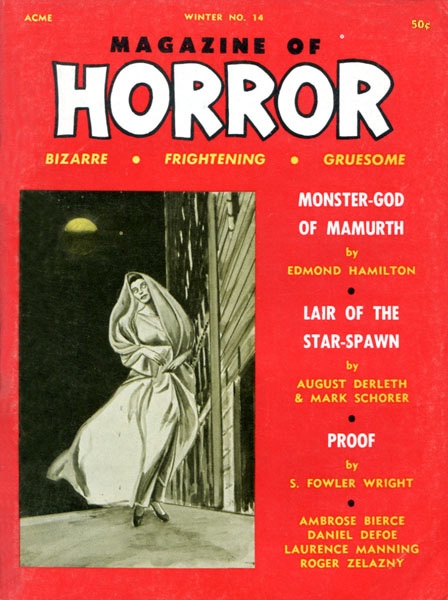
First appeared in Robert A. W. Lowndes's Magazine of Horror, finalist for the Hugo, reprinted by Lee Harding, Matthew Berger, Alexander Klapwald, Kenneth Sharp, Brian Attebery, Ursula K. Le Guin, Tracy Hickman, Margaret Weis.
Summary:
A man, who used to have telepathy, has forgotten how to do it. He finds a female mind who is able to do it, so he seeks her.
Discussion (Spoilers):
After a few failed connections, the man connects and she helps him breakthrough whatever was blocking him. However, he learns she is a young woman, hopitalized and dying, so his connection brought her memories of his life, so before her death, he gives her all that he has.
This is a wonderful, efficient little tale. I'm conflicted. It does a beautiful job executing the story in an emotionally impactful way. Any complaint would be negligible. However, is it one of the great tales? Does it resonate past its confines? Emotionally, yes. Is it a classic that makes you ponder the outcome in some meaningful way? I'm not sure that it does except to a minor degree. However, its inclusion--and a number of these brief, impactful tales--is a kind of challenge. What kind of story does belong? Does it need to be of a certain length? Fredric Brown's "The Weapon" is just a few pages long, but it wouldn't surprise me to be in such a major anthology like Norton's considering the way it forwards an integral question, better than stories 10x its length. What makes a major work? Something to ponder.
Also interesting that this originally appeared in a horror magazine but there's really nothing of horror in it. Perhaps the major magazines passed on it--which boggles the mind--and Lowndes took it despite the lack of horror.
(It appears that the title changed over the years and at one time had "and strange stories" which would makes more sense. Perhaps it was trying to hop on the horror train and dropped the original title.)

No comments:
Post a Comment